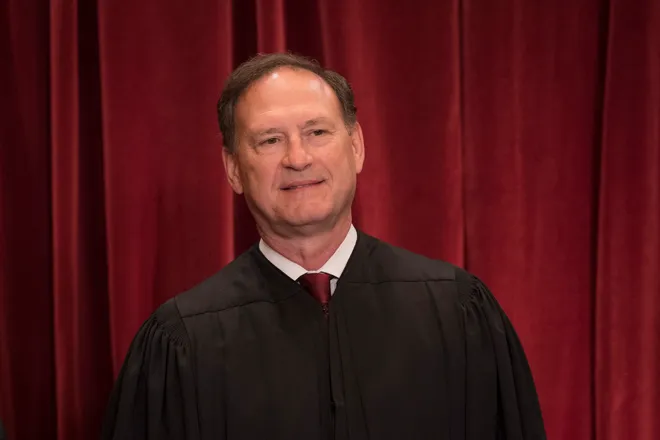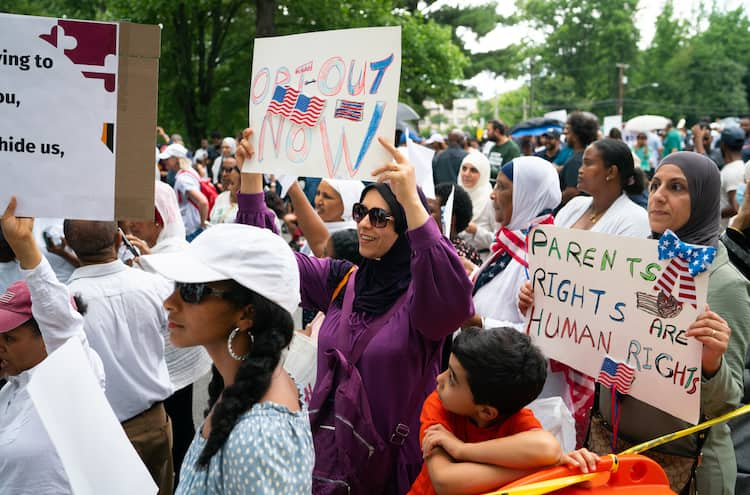The recent Supreme Court ruling in favor of parents seeking to opt their children out of LGBTQ-themed books in public schools marks a significant shift in the landscape of educational rights and parental authority. In a 6-3 decision, the Court asserted that refusing to allow opt-outs burdens parental First Amendment rights. This ruling raises profound questions about the role of public education in promoting inclusivity versus upholding religious beliefs.
The Implications of Parental Opt-Outs
As highlighted in the Supreme Court"s opinion, parents have the constitutional right to direct their children"s education, especially when it involves matters of personal belief and religion. Justice Samuel Alito emphasized that the books in question promote a specific viewpoint regarding same-sex marriage and gender identity. This ruling will likely embolden similar challenges across the nation, allowing parents to selectively censor educational content based on their personal beliefs.
The Threat to Public Education
Justice Sonia Sotomayor"s dissent starkly outlines the potential consequences of the majority ruling. She warned that the decision could “constitutionalize a parental veto power” over educational curricula that have traditionally been determined through democratic processes. This shift could radically alter the framework of public education, undermining its foundational mission to expose students to diverse ideas and perspectives.
\n\n
Justice Samuel Alito"s Supreme Court career in photos
The Broader Context of Censorship
This ruling does not exist in a vacuum. It reflects a wider movement led by conservative legislators seeking to limit discussions around LGBTQ+ identities and history in schools. The decision not only allows for greater parental control over educational content but also aligns with ongoing efforts to ban books and censor discussions that promote inclusivity. As reported by BBC, the ruling comes at a time when many states are enacting laws to restrict what can be taught in classrooms, further marginalizing LGBTQ+ narratives.
The Impact on LGBTQ+ Students
The ramifications of this ruling will be felt most acutely by students who identify as LGBTQ+. The Montgomery County school district had introduced these books to better reflect the community"s diversity, aiming to foster an inclusive environment. However, the opt-out option could lead to social stigma for students who see their identities represented in literature, as their peers may associate their absence from these discussions with shame or exclusion.
\n\n
Supreme Court sides with religious parents in LGBTQ ...
The Role of Advocacy Groups
Organizations like PFLAG National have voiced their concerns over the ruling, emphasizing that all students thrive in an inclusive environment. Their statement reflects a broader understanding that exposure to diverse viewpoints is essential for fostering empathy and respect among young learners. As reported by USA Today, this ruling could embolden further actions against LGBTQ+ rights in education and beyond, creating a ripple effect that may undermine hard-won progress in civil rights.
The decision is emblematic of a larger cultural battle over educational content and the rights of marginalized communities. As public discourse continues to evolve, it is imperative that advocates for equality and inclusion remain vigilant in the face of legal and legislative challenges that threaten the rights of LGBTQ+ individuals and the integrity of public education.


![[Video] Hillary Clinton: Women's equality is the unfinished business of the 21st century](/_next/image?url=%2Fapi%2Fimage%2Fthumbnails%2Fthumbnail-1765096256004-4wn0xo-thumbnail.jpg&w=3840&q=75)

![[Video] Erdogan: Ethnic and religious diversity should not divide Turkey](/_next/image?url=%2Fapi%2Fimage%2Fthumbnails%2Fthumbnail-1764249656004-ion8m-thumbnail.jpg&w=3840&q=75)


![[Video] Gunfire between Iraqi security forces and Sadr militias in Baghdad](/_next/image?url=%2Fapi%2Fimage%2Fthumbnails%2Fthumbnail-1768343508874-4redb-thumbnail.jpg&w=3840&q=75)
